10 Mins Read
Why did you decide to stop buying clothes for a year?
It started in Hong Kong on the 10th of May this year. I’ve always been interested in environmental matters, but this year things have really ramped up. I feel like I’ve been actively seeking more knowledge and at the same time that information has also been finding me. Now it’s just one big tango.
What I have been learning about fashion and the environment is disturbing. If we think the problem is big, we need to multiply it a few times to get closer to the reality.
The fashion business is one of the most polluting industries on earth and contributes significantly to emission of harmful greenhouse gases. According to Greenpeace, clothing production doubled from 2000 to 2014, and it’s expected to rise even more in the coming years.
It was at a talk by Hashtagimpact at Eaton House in May when Regina Larko interviewed Redress Founder, Dr. Christina Dean, that’s when the penny really dropped for me. Two days later I promised myself to embark on a year of no new clothes shopping, “right, let’s give this a go!” I thought to myself.
Ed. Note: Listen to Green Queen Founder Sonalie Figueiras’s episode on the Hashtagimpact podcast.
Did anyone in the local community inspire you throughout your journey?
I’ve been meeting people who are very active on the environmental front, from a number of different areas, and fashion has been a big one.
Local NGO Redress have been fantastic at bringing the clothing conversation to the forefront, working with brands and designers and providing waste reducing education to fashion designers- crucial given that 80% of the environmental impact happens at the design stage.
 Are there days when you want to give up?
Are there days when you want to give up?
I don’t ever feel like giving up, this isn’t a life or death situation. The ego or lazy/instant gratification department of my brain may feel tested at times, but so what? It’s good to retrain thinking patterns and that area of my mind can do with a good kick up the bum.
What are the hardest or most challenging parts?
I’m almost six months into my challenge and it has been revealing on a number of levels: emotionally, practically, financially and psychologically.
I look at clothing differently. If I find myself in a big fashion brand store, say Zara for example (they have good aircon) I don’t see fun harmless wardrobe pieces at low prices. I see racks and racks of textiles and dyes, and the sheer volume of it all makes me feel panicky. I think about all the work, human and earthly, that went into loading those hangers. And wonder where it will end up. I know too much now to look the other way.
Strangely enough the hardest parts have been acknowledging my own behaviour. I now understand that fast fashion was a ‘reward’ for anything and everything from boredom to a pick me up. With so many inexpensive clothing shops around one can easily pop out to run an errand and come back with a whole new ensemble. I once went shopping for a t-shirt and came back with a ball gown (true story).
Although I’ve never been a big shopper (stuff just weighs me down in life), just realising how I used shopping as an escape, which proved hollow and unsatisfying, was an eye opener.
I’ve taken a closer look at myself and asked some tough questions. Changing learned behaviour has been the biggest challenge. But also the most exciting. The person I hope to be is one who can challenge my own thoughts around things.
 What’s been the most rewarding part of your journey so far?
What’s been the most rewarding part of your journey so far?
It has been rewarding in ways I could never have imagined. I believe our actions overlap into numerous environmental spheres – how we consume, what we consume has an effect. Connecting the dots around our actions and the impact of that is clearer to some people than others.
I started looking at plastic, recycling, food waste, fast fashion, single use plastics, coffee cups, in our thirst for disposable throwaway utensils – it is all interwoven. When I started focusing on one area the rest fell into place. I feel I now better understand the urgency and intensity of the challenges at hand.
Today I have friends from as far as the US posting photos of themselves in something they bought in a thrift shop on my Facebook page with a message: ‘thought you would be proud, I just bought this from a second hand store.’
People are powerful. They just need reminding of this from time to time.
 What are some of the most surprising things you have learned?
What are some of the most surprising things you have learned?
On this road I have learned that a lot of the waste from clothing comes from aftercare.
When we wash synthetic fabrics, such as polyester and acrylic, they shed thousands of plastic fibres each time – sending another source of plastic pollution down the drain and, eventually, into the ocean. Marine microplastics – fragments and fibres found in the ocean surface, the deep sea and the marine food chain, are significantly impacted by this. Sometimes clothing just needs airing, not constant washing.
Dry cleaning is another way clothing contributes to environmental, and health, damage. Most of the time, a solvent called perchloroethylene (which is also known as ‘perc’) is used to clean the fabrics. According to the United States Environmental Protection Agency (EPA), people exposed to high levels of perc, even for brief periods, may experience serious, negative health symptoms, and the impact environment doesn’t fare much better.
Packaging – do I really need bags, ribbons, bows and boxes for everything? The answer more often than not is: no. I’m the person at the till popping my purchase in my own cloth bag and kindly saying I would rather cut back on all the “trimmings” thank you.
The book Dress [with] Sense by Redress is a good guide on sustainable fashion and how to look after clothes.
 Where are the best places to grow your second hand wardrobe in Hong Kong?
Where are the best places to grow your second hand wardrobe in Hong Kong?
I’m a hunter, so I like the chase and the digging around. I’m used to foraging for clothes, I’ve lived in places when that was the only option at the time (I lived in Cambodia from 2006 to 2010) so I enjoy it and the creative solutions one comes up with and unearthing gems. There is great joy in moments like that.
In Hong Kong I go to Green Ladies and The Salvation Army. I am lucky to travel a lot and love nothing better than starting the day early in a new city, discovering places for a vegan breakfast then rummaging around charity shops. Bliss.
Locally I have heard great things about French second-hand boutique Mademoiselle Chic Boutique, for all things elegant and upscale. Redress has also recently launched BYT, I really like the energy behind this new social impact brand.
I am a founding member of Circular Community Hong Kong, a group of industry insiders and creatives looking at ways to encourage less waste and consumption in Hong Kong. We started this group earlier this year at Metta and have been growing ever since.
We had a fashion event this past September where we invited people to bring in clothing to mend, upcycle or swap, over drinks at The Hive with designers on hand to guide and inspire. The Salvation Army donated items and we had a photographer on hand for a fashion shoot session in one section of the room. It was a super evening and some pretty fantastic outfits left the building after that event.
Ed.Note: Make sure to check out our roundup of #preloved fashion pop-ups around town.
 What about shoes? And underwear? Aren’t those hard to find/use secondhand?
What about shoes? And underwear? Aren’t those hard to find/use secondhand?
Haha, the knickers question always cracks me up – I have never talked so much about my knickers as I have since this project. To be honest I have not had to cross that bridge yet, I tend to buy good quality that lasts, so they have stood me well to date. But when the time comes I think looking for sustainable brands will be the way ahead as my inner hunter doesn’t fancy digging for second hand versions of these particular clothing item.
Shoes is an interesting one – I love looking in charity shops as often heels from runway shoes will end up there, worn once for 15 minutes and then given away. Having said that, I am a Yeti by local standards, so finding a shoe that fits is a true Cinderella moment.
If I get stuck needing a particular shoe I will again go the sustainable brand way – for example I am in need of day to day trainers at the moment and will be getting a pair of Veja trainers soon.
For other things such as swimwear, and who knows what else will crop up, I will research brands and spend my money in people who run ethical businesses. Project Just is a great platform to learn about who is doing what.
Is there any way fashion brands can be a positive force of our economy?
Absolutely. Fashion is an art, a vehicle for expression and a way to share culture. Practical and whimsical, it straddles so many spheres. However the industry has spiralled out of control.
There are a number of ways to address this challenge we face, what we need is information, support, encouragement and creativity. Questioning the language used in the media and psychology behind being sold to is also important.
When I open a fashion magazine the words that never fail to appear are “Must Have” “buy now” “don’t miss out” “Beyonce has it” etc. I appreciate that these are businesses and doing what they need to do – sell – but at what cost? To our self esteem, environment, sense of self? Is it really worth it?
 Can one person really make an impact when it comes to #zerowaste?
Can one person really make an impact when it comes to #zerowaste?
#Zerowaste can be an intimidating concept. I’m pretty mindful of waste: I recycle, carry my own coffee cup, metal water bottle, shopping bag etc. But no way can I throw the zero waste title around in a personal capacity – yet. I have met people who can fit their waste of a year in a jar, Paola Cortese from LoopUnite (now Zero Waste Life) for example, and, while I aim to be one of them in time, at the moment my head just spins into overdrive thinking about the logistics behind that.
I am super far from perfect, but between the ‘perfect’ choice and a ‘way better’ choice is a lot of opportunity. It can be easy to fall into the “what’s the point” pit, where you look around at all the frightening statistics, the mindless waste we generate, and feel that nothing we do will make a dent in the grander scheme. What’s the point in separating my plastics from my paper for the recycling bin when even coconuts come packaged in plastic nowadays? It can feel like pushing a boulder up a hill.
That’s when it’s time to reflect and get a little Yoda with yourself. I get philosophical when I feel myself getting “eco-anxiety” (it’s a thing, really: “The damage of unfolding climate change is likely eroding mental health on a mass scale, too, reports the American Psychological Association, the preeminent organization of American mental health professionals”).
What kind of relationship do I want to have with the world? What has value? Will I look back in ten years and be happy with the way I navigate challenges? Can I be true to myself in society, make a mark and show people that there is another way to do all this? Can I inspire people?
And importantly – can I enjoy the challenges and the ride? I feel like I’m just getting started, but I think we are onto something good.
About Tanja Wessels
A biophile by design, Tanja Wessels writes and translates for a number of publications, including Macau Closer Magazine, and loves travel almost as much as she does banging on drums. A founding member of Circular Community Hong Kong and a volunteer at Animals Asia, she is developing a regional environmental platform, All In – Asia to connect and elevate sustainable enterprises around Asia.
This interview is part of our Zero Waste Fashion Series, make sure to check out the other posts in this series.
All photos courtesy of Tanja Wessels.

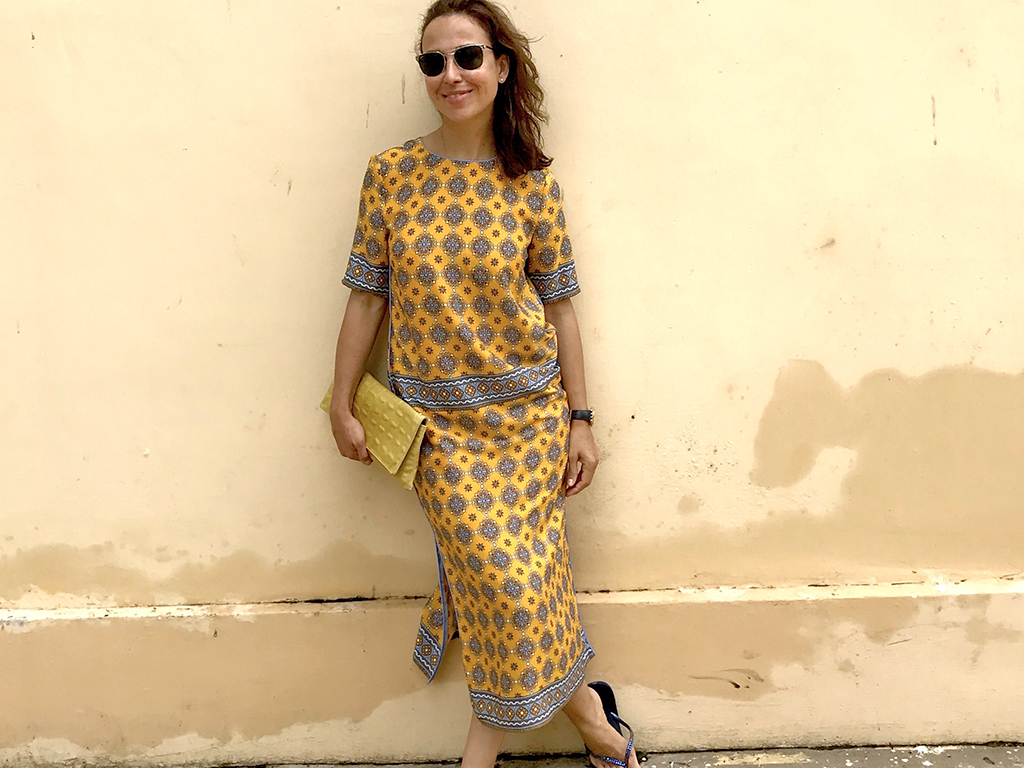
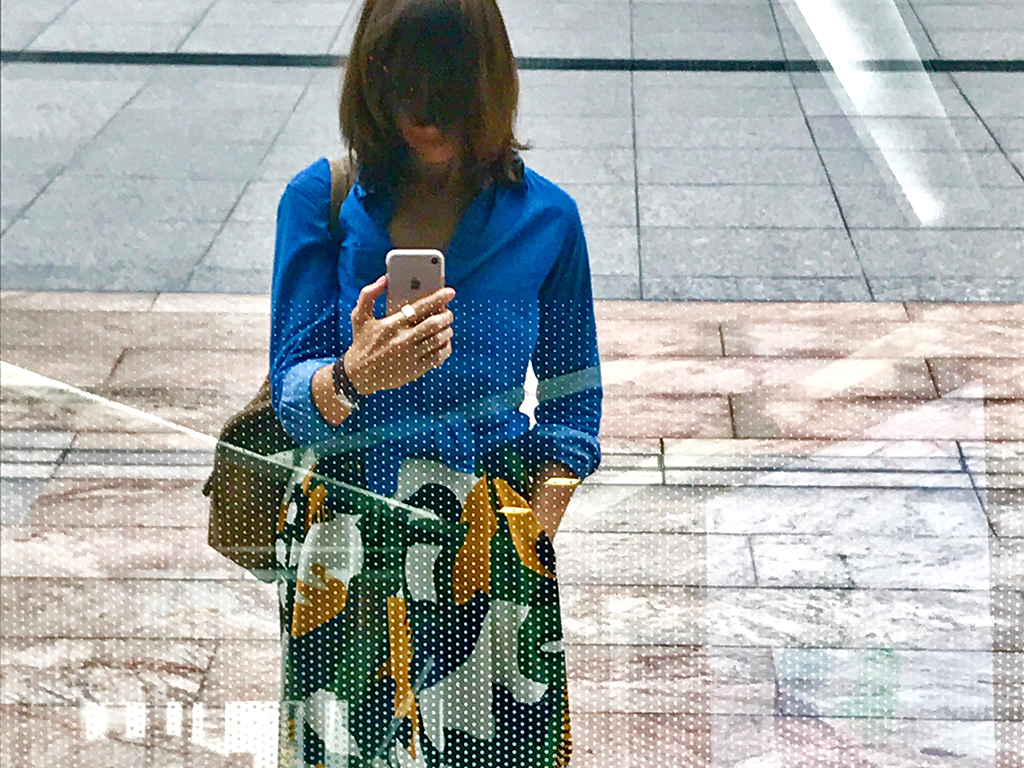 Are there days when you want to give up?
Are there days when you want to give up?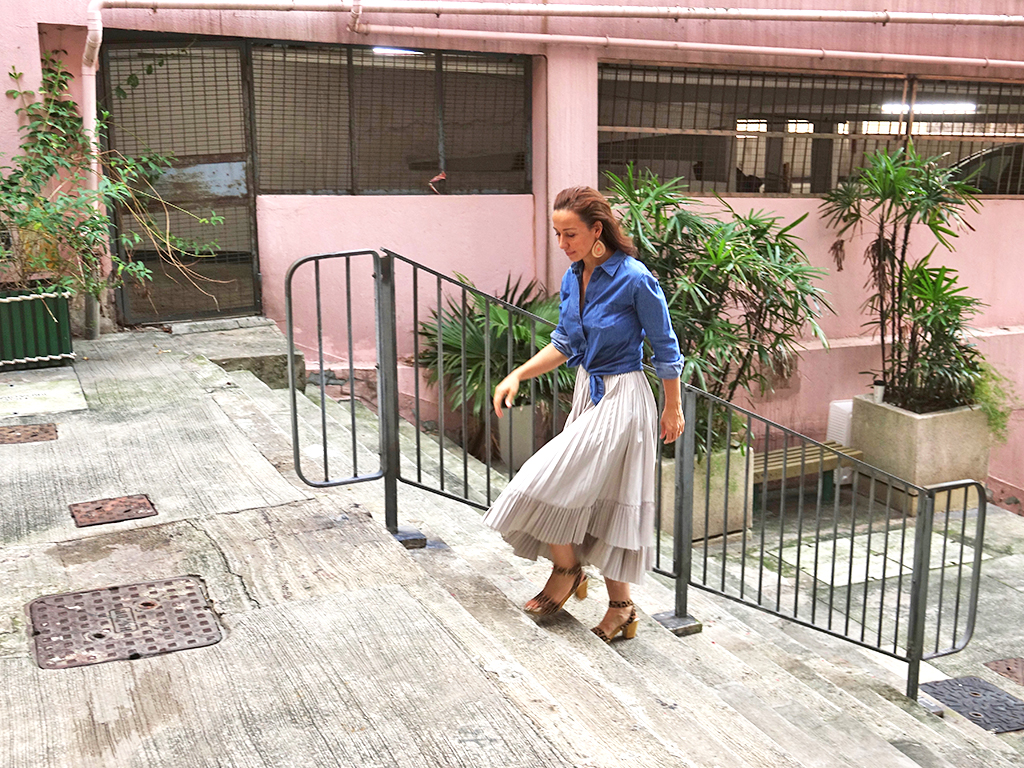 What’s been the most rewarding part of your journey so far?
What’s been the most rewarding part of your journey so far?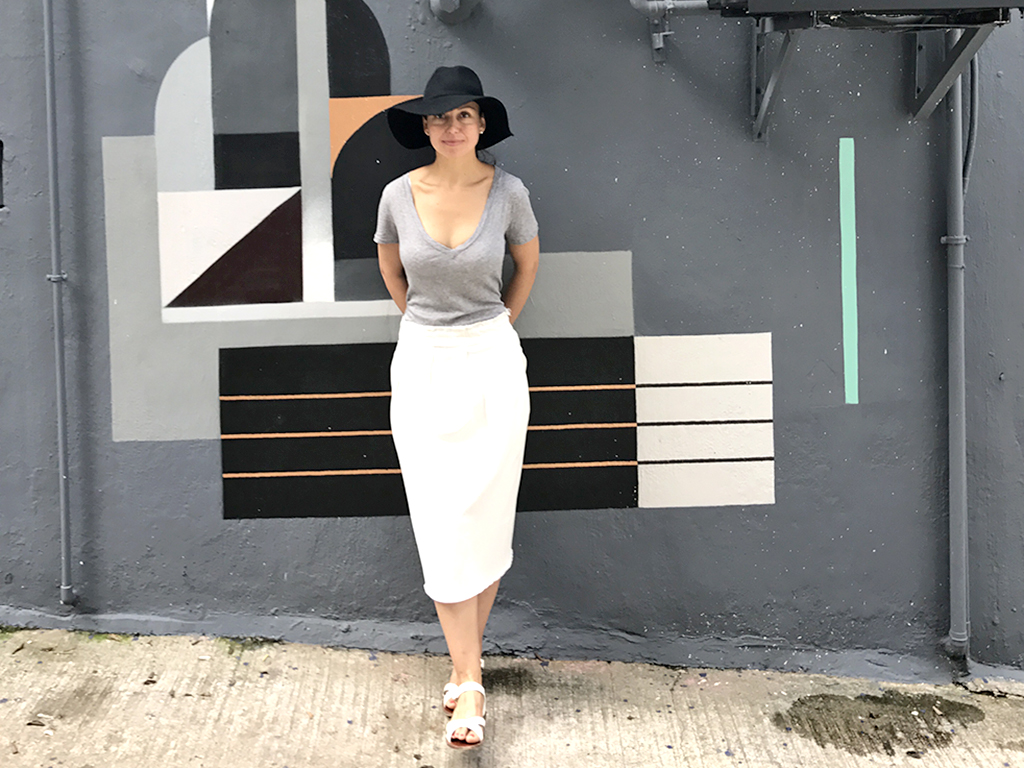 What are some of the most surprising things you have learned?
What are some of the most surprising things you have learned?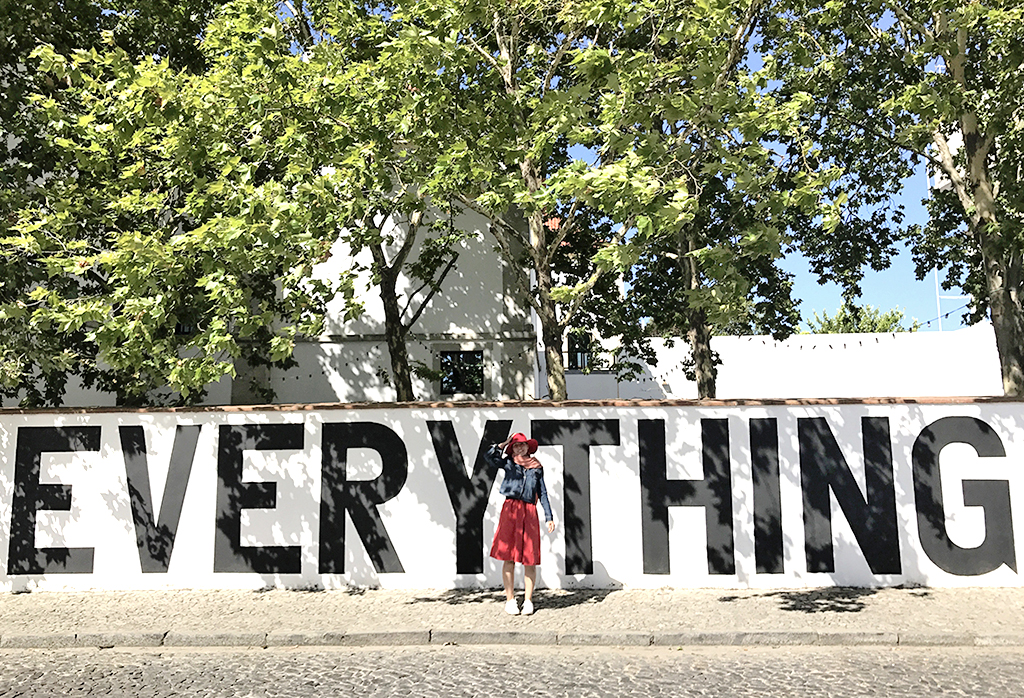 Where are the best places to grow your second hand wardrobe in Hong Kong?
Where are the best places to grow your second hand wardrobe in Hong Kong?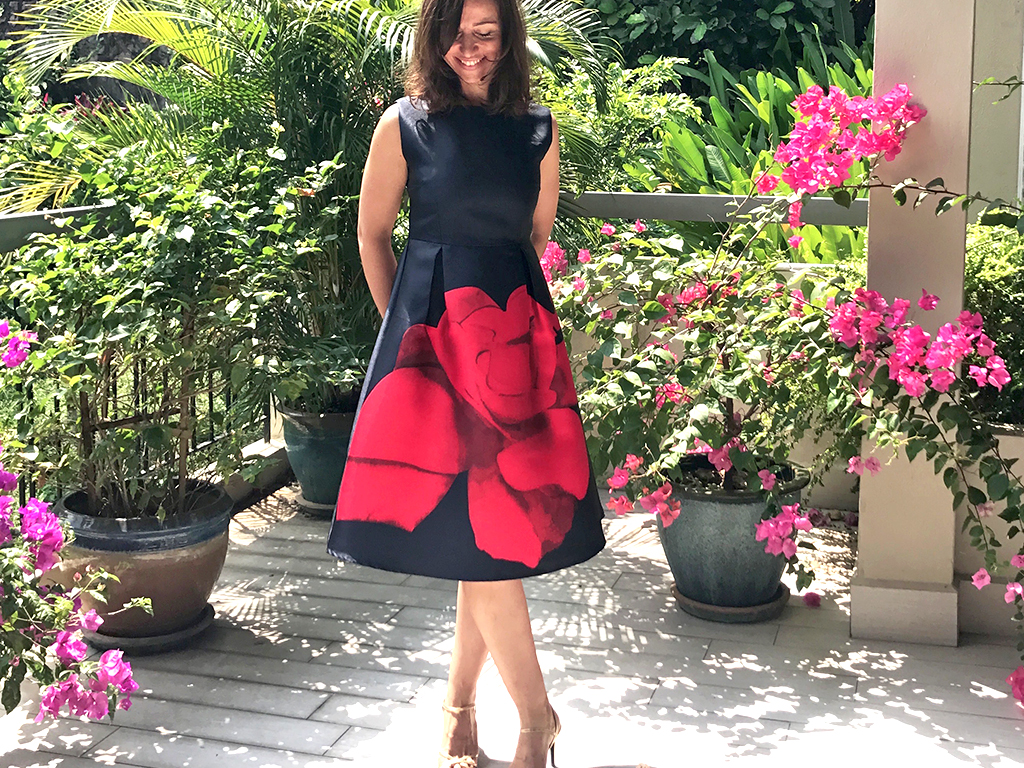 What about shoes? And underwear? Aren’t those hard to find/use secondhand?
What about shoes? And underwear? Aren’t those hard to find/use secondhand?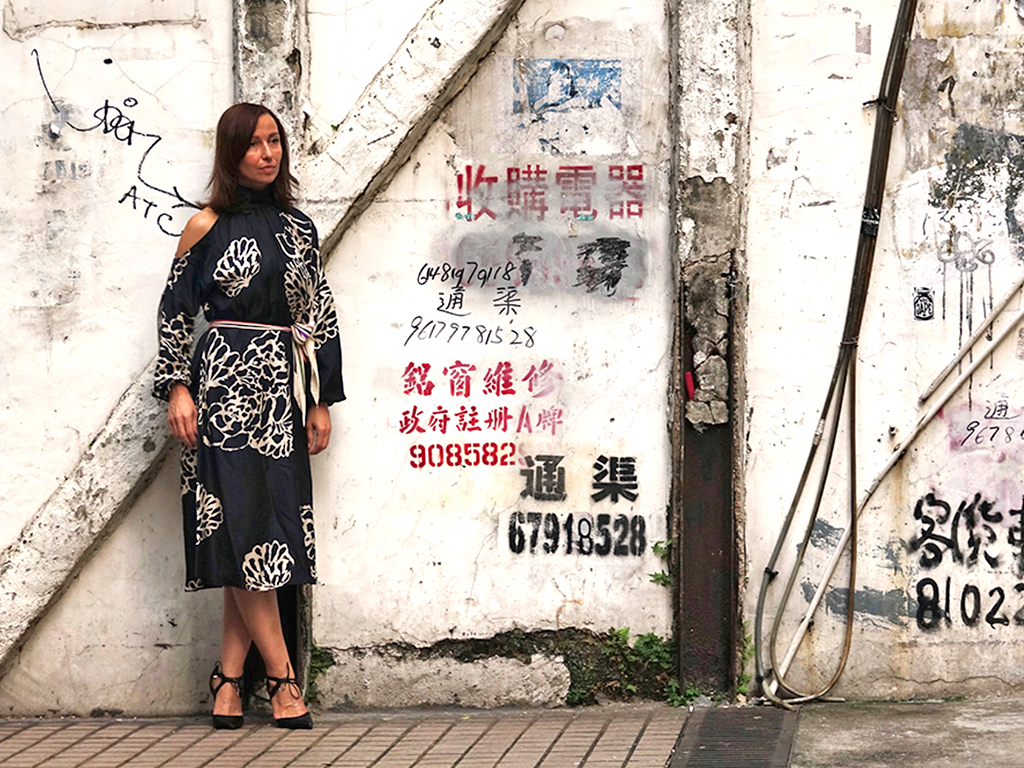 Can one person really make an impact when it comes to #zerowaste?
Can one person really make an impact when it comes to #zerowaste?

